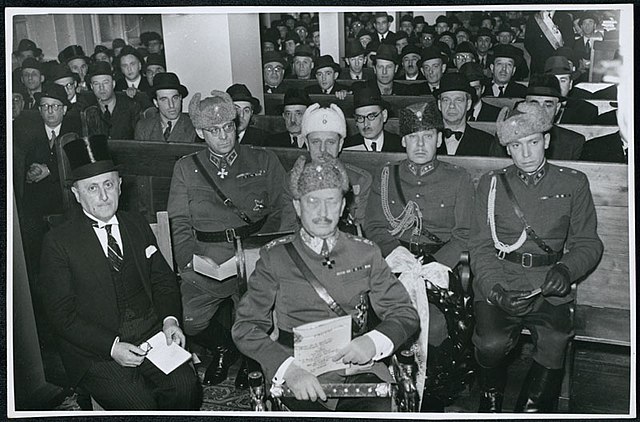History of the Jews in Finland
The history of the Jews in Finland goes back to the late 18th century. Many of the first Jews to arrive were nineteenth-century Russian soldiers who stayed in Finland after their military service ended. The two synagogues in active use today in Finland were built by Jewish congregations in Helsinki and Turku in 1906 and 1912, respectively. The Vyborg Synagogue was destroyed by Russian air bombings on 30 November 1939, the first day of the Winter War. Today, Finland is home to around 1,800 Jews, of which 1,400 live in the Greater Helsinki area and 200 in Turku. Finnish and Swedish are the most common mother tongues of Jews in Finland, and many also speak Yiddish, German, Russian or Hebrew. Since data collection began in 2008, incidents of antisemitism have been on the rise in Finland. The number of incidents are likely under-reported, as Finland does not have a systematic method for recording specific forms of hate speech that incite violence or hatred.

Graves of the Jewish soldiers who served in the army of the Russian Empire, located next to the Eastern Orthodox cemetery in Hamina.
A Finnish field synagogue with soldiers at the Continuation War.
Memorial ceremony for Jewish soldiers who fell in World War II, Helsinki, Finland
The synagogue of Turku
Cantonists were underage sons of conscripts in the Russian Empire. From 1721 on they were educated in special "cantonist schools" for future military service. The cantonist schools and the cantonist system were eventually abolished in 1857, following public and international criticism and the Russian defeat in the Crimean War.
Cantonists
Herzel Yankel Tsam, one of only eight recorded exceptions in the Russian army in the 19th century of Jewish cantonists who rose to the rank of officer without first converting to Christianity. Drafted as a 17-year-old cantonist, he became an officer in 1873. He was not allowed any promotions beyond captain until his retirement after 41 years of service, when he was given rank and pension of a colonel. In spite of pressures, he never converted.






